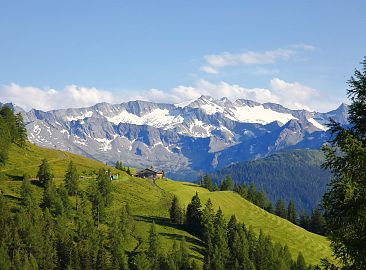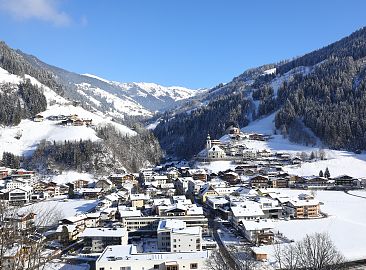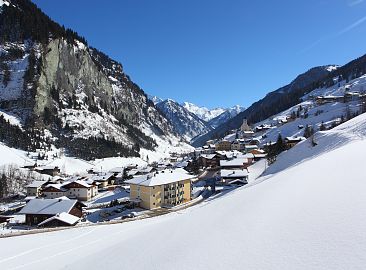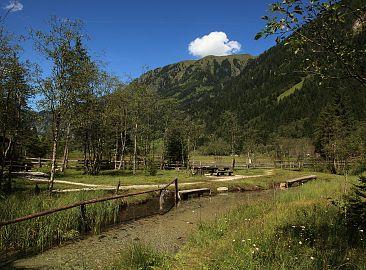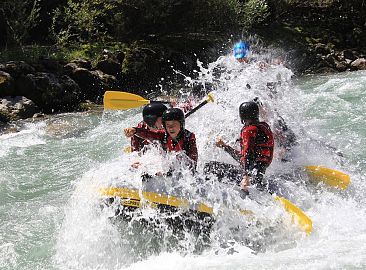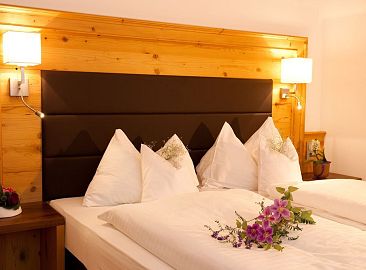Liechtensteinklamm
excursion destination in SalzburgerLand
The Liechtensteinklamm, located at the entrance to Grossarltal in St. Johann im Pongau, stands as one of the longest and deepest gorges in the Alps. Allow yourself to be captivated by the powerful roar of the waterfall and the fine mist that creates enchanting rainbows.
Content
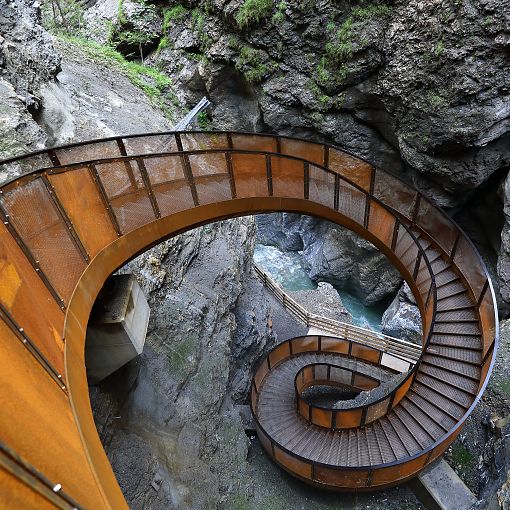
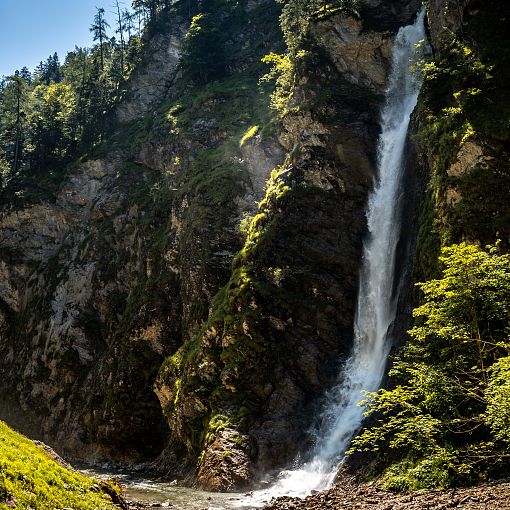
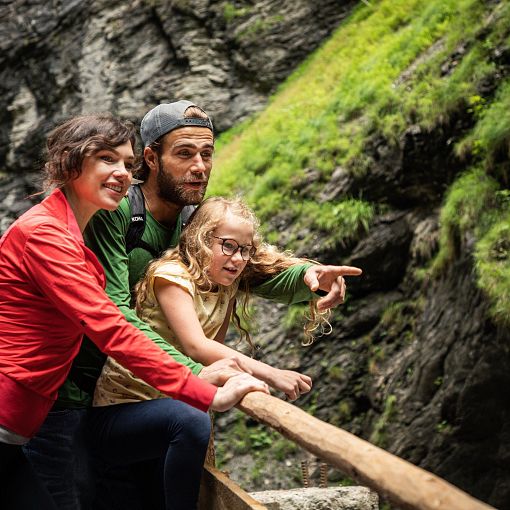
Opening times 2026
Liechtensteinklamm is open daily from begin of May until 30 September 2026 from 09:00 to 18:00 (last admission at 18:00).
From 1 October to 31 October 2026, the gorge is open daily from 09:00 to 16:00 (last admission 16:00).
Holders of the SalzburgerLand Card can enjoy one-time free entry. Visitors with a guest card from Grossarltal receive a discount at the entrance. Additionally, there are special reduced rates for group tickets.
Admission prices 2026
| Age | Price | |
|---|---|---|
| Adults (from 18 years) | € 16.00 | |
| Children & youths | € 9.00 |
Parking
- Plenty of parking is available for your visit to the Liechtensteinklamm.
- From the last parking area, it's approximately 400 meters to the gorge entrance.
Getting there
Public transport
You can reach the Liechtensteinklamm easily using the City Buses from St. Johann. Ride the No. 52 City Bus, or take Bus 51 from the train station to the post office, then switch to the No. 50 bus, which runs directly to the Liechtensteinklamm.
With the Guest Mobility Ticket, you can use all public transport in SalzburgerLand free of charge during your stay (including arrival) from 1 May 2025.
All bus maps of the Salzburger Land at a glance.
Driving from Grossarltal
If you're staying in Grossarl or Hüttschlag, you will need to drive about 14 km along the Grossarler Landesstrasse towards St. Johann im Pongau, then turn right and immediately right again in the direction of Plankenau. Follow Liechtensteinklammstrasse for about 3 km to reach the parking areas. Adress: Liechtensteinklammstrasse 123, 5600 St. Johann im Pongau
Useful information
Is Liechtensteinklamm suitable for children?
The Liechtensteinklamm is ideal for the whole family, though due to many steps and a big stairway, surefootedness is a must. Strollers are not possible.
Can I bring my dog to Liechtensteinklamm?
Dogs are allowed (leash and muzzle required). Note: There are many steps, some of which are metal gratings, which may potentially cause injury to dogs.
How long does the hike through the gorge take?
The well-maintained paths, wooden footbridges, and stairs span approximately 3 km, including about 440 steps and 100 meters in elevation out and back. The total walking time is around 1.5 hours. The same path is used for both entry and exit – there is no hiking loop per se.
What equipment do I need?
It's quite cool in the gorge due to the proximity to rushing water, so a warm jacket is recommended. Sturdy footwear is also advised as some sections and stairs can be slippery or wet.
In what weather can I visit Liechtensteinklamm?
The Liechtensteinklamm can be visited in almost any weather. On hot days, the hike along the water is perfect to cool off a bit. You're mostly in the shade, and the surging water keeps the gorge pleasantly cool. In the rain, the volume of water and especially the view of the big waterfall become even more impressive (but make sure you have the right gear!). However, during high water or severe thunderstorms, Liechtensteinklamm may be closed.
Where can I stop for a bite to eat?
Two restaurants, Gasthof Obersteiner and Klammwirtin, are located right at the entrance to Liechtensteinklamm, perfect for grabbing something to eat or drink before or after your visit.
Highlights
of Liechtensteinklamm
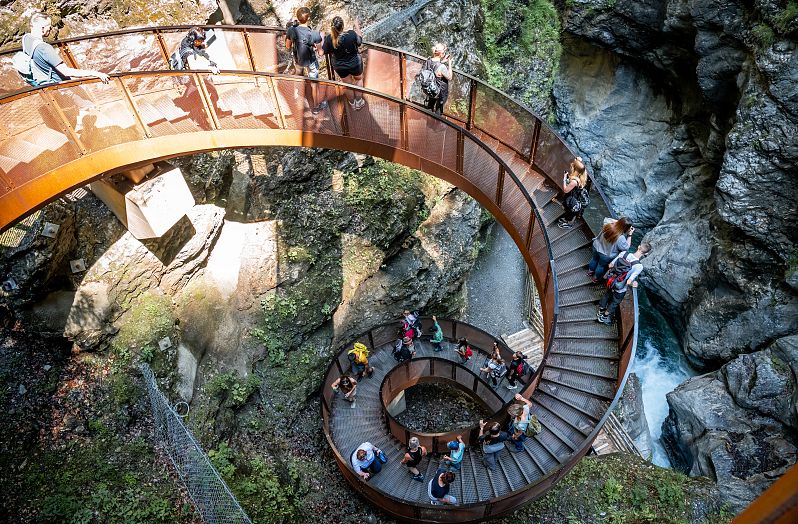
After a rockslide in May 2017, the Liechtensteinklamm had to be closed but was reopened to visitors in June 2020 following three years of restoration.
The new highlight is the impressively constructed "Helix" staircase, a spiral stairway that descends 30 meters into the depths. From both the top and bottom, this attraction offers a unique view into the gorge.
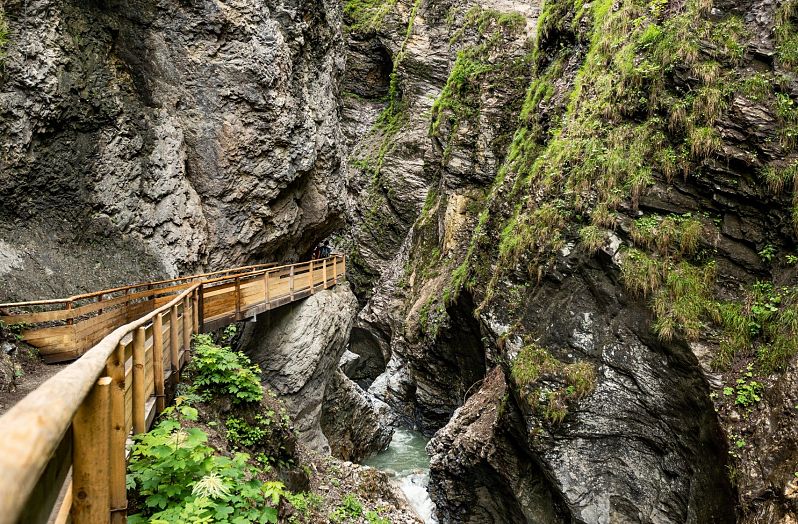
Spanning 4,000 meters, the Liechtensteinklamm is one of the longest gorges in the Alps. About 1,000 meters of the gorge are accessible and can be admired by visitors. The cliffs reach depths of up to 300 meters. In some places, the gorge is only a few meters wide. At the end of the gorge, you will find a viewing platform offering a breathtaking view of the big waterfall.
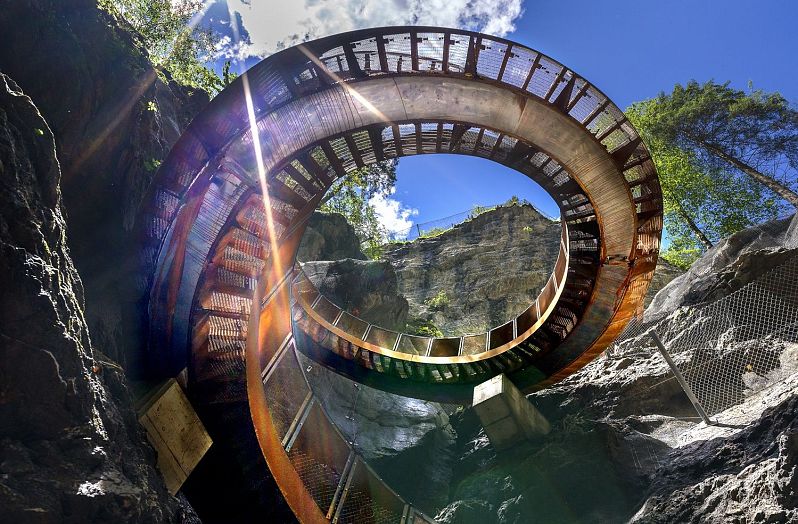
Liechtensteinklamm was awarded second place in the ORF show "9 Places – 9 Treasures" in 2022, marking it as one of Austria's most significant treasures. The show annually selects beautiful places from each of Austria's nine provinces, with a jury and live TV audience choosing the most beautiful spot.
Read here how, for the second time in the history of "9 Places – 9 Treasures," a location from Salzburg was chosen as the second most beautiful place in Austria.
The Legend and history
of Liechtensteinklamm
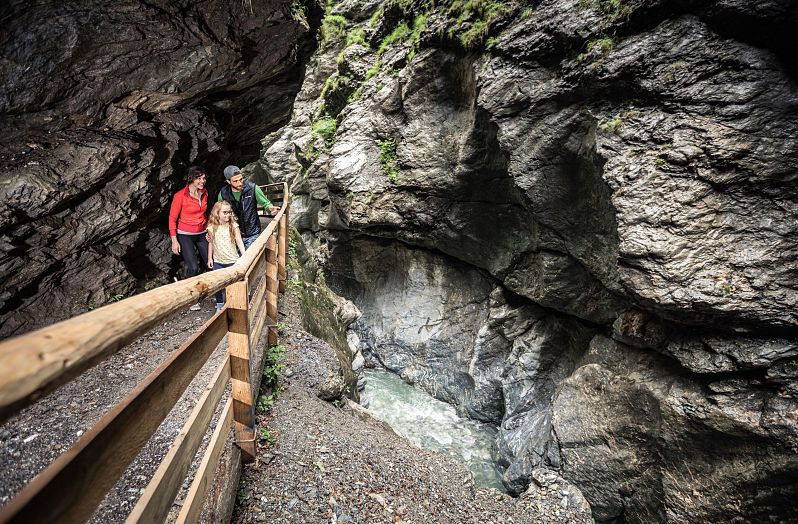
In Plankenau near St. Johann, there lived a blacksmith from Oberarl with his crippled daughter. The blacksmith had pledged his daughter to the Devil in exchange for the Gastein springs to be brought to his doorstep. However, the task would have to be completed before the first cock's crow the next morning.
The Devil and the blacksmith sealed the pact, and the Devil began his supernatural work by the dead of night. However, the blacksmith's wife learned of her husband's plan and thwarted it: She took their rooster and plunged it into the ice-cold well water before daybreak.
Terrified, the rooster crowed loudly. The Devil, carrying the warm springs high above the gorge at that very moment, realized he had lost the bet. In his fury, he hurled the springs into the depths of the gorge instead, intending them to be forever out of human reach.
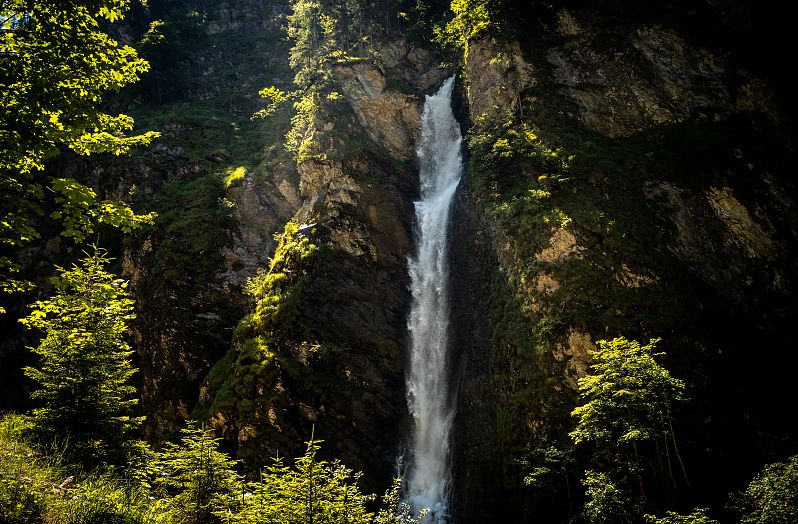
The waters of the Grossarler Ache formed today's Liechtensteinklamm over the course of millennia. The gorge represented a significant obstacle to transportation for Grossarltal, eventually circumvented with considerable effort by means of the road east above the gorge.
In 1875, members of the Pongau Alpine Club began making the gorge accessible to the general public. Due to a lack of funds, they sought a financial backer and approached Prince Johann II of Liechtenstein, who had hunting grounds nearby in Grossarl. The prince was enthusiastic about the idea and donated 600 guilders for the development of the gorge.
Work continued, and the gorge opened in 1876. In gratitude for the prince's generous donation, the gorge, originally known as the Grossarlerklamm, was renamed Liechtensteinklamm.
An inn was built at the entrance to the gorge back in 1924. The original structure was demolished in 2011, and a new one opened in 2012.
